Beyond Anxiety: Lesser-Known Uses of Diazepam in Various Medical Conditions
Are you familiar with Diazepam as a treatment for anxiety and panic disorders? While this medication is commonly used for these conditions, its benefits extend beyond alleviating feelings of unease. In this article, we’ll explore the lesser-known uses of Diazepam in various medical conditions, shedding light on its effectiveness in treating ailments such as seizure disorders, insomnia, muscle spasms, and alcohol withdrawal. Let’s dive into the diverse world of Diazepam and discover how it can offer relief beyond anxiety.
Seizure Disorders
Seizure disorders can be challenging to manage, impacting individuals’ daily lives and overall well-being. Diazepam, known for its calming effects on the brain, is also used in the treatment of seizures. People who have the tendency to experience seizures usually get the diazepam for sale online so that they have one on hand wherever they go. It enhances the effects of a neurotransmitter called GABA, inhibiting excessive brain electrical activity that triggers seizures. Diazepam can be given orally or intravenously in emergencies to stop prolonged or recurrent seizures. For those with epilepsy or other seizure disorders, Diazepam plays a crucial role in managing acute episodes effectively.
Insomnia
Do you find yourself tossing and turning in bed, struggling to fall asleep night after night? Insomnia can be a frustrating and exhausting experience for many. The constant battle with racing thoughts and restlessness can significantly impact your quality of life. This is where Diazepam, often prescribed as a short-term solution for insomnia, comes into play. Diazepam helps promote relaxation and improve sleep quality by calming the mind and body. Its soothing properties can help you easily drift into a peaceful slumber. However, it’s essential to use Diazepam for insomnia under the guidance of a healthcare professional.

Muscle Spasms
Diazepam, commonly known as Valium, is not just used for anxiety. It can also be prescribed to help manage muscle spasms by acting as a muscle relaxant. Diazepam helps calm overactive muscles and reduce involuntary contractions by targeting the central nervous system. If you find yourself dealing with persistent muscle spasms that impact your daily activities, speaking with your healthcare provider about its benefits could provide some relief. Remember to always follow your doctor’s instructions carefully when taking any medication to ensure safe and effective treatment.
Alcohol Withdrawal
Excessive alcohol consumption can lead to physical dependence, making it challenging for individuals to stop drinking without experiencing withdrawal symptoms. Diazepam, commonly known by the brand name Valium, is sometimes prescribed during alcohol withdrawal to help manage symptoms such as anxiety, tremors, and seizures. When someone abruptly stops drinking after prolonged use, their body may go into a state of hyperexcitability due to changes in neurotransmitter levels. This can result in uncomfortable and potentially dangerous symptoms like hallucinations and elevated heart rates. Diazepam acts as a calming agent on the central nervous system, helping to alleviate these distressing effects.
Remember, while Diazepam can be beneficial in managing these medical conditions, it’s crucial to be aware of its potential side effects and risks. If you believe …
Continue reading


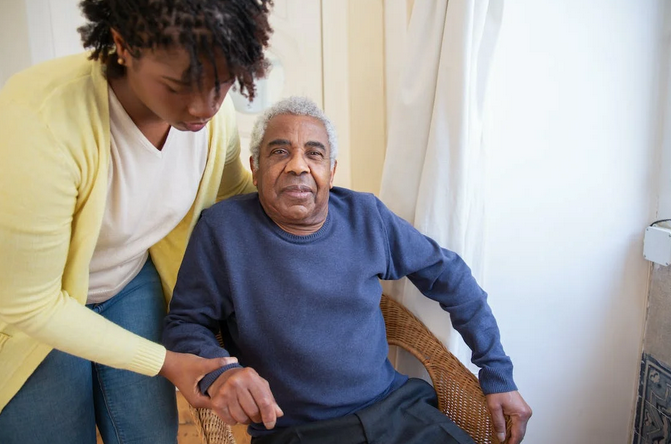


 In addition to its cognitive benefits, Lion’s Mane mushroom may also play a role in maintaining a healthy nervous system. Studies have indicated that Lion’s Mane exhibits neuroprotective properties by potentially reducing inflammation and oxidative stress in the brain. This could positively impact conditions such as Alzheimer’s and Parkinson’s diseases. While more research is needed, the potential for Lion’s Mane mushroom to support nervous system health is worth exploring further.
In addition to its cognitive benefits, Lion’s Mane mushroom may also play a role in maintaining a healthy nervous system. Studies have indicated that Lion’s Mane exhibits neuroprotective properties by potentially reducing inflammation and oxidative stress in the brain. This could positively impact conditions such as Alzheimer’s and Parkinson’s diseases. While more research is needed, the potential for Lion’s Mane mushroom to support nervous system health is worth exploring further. In our fast-paced, stress-filled lives, finding natural ways to relax and unwind is essential. Lion’s Mane mushroom has been associated with potential stress-relieving properties, helping to combat anxiety and depression symptoms. Moreover, it has been used in traditional medicine as an adaptogen, which means it may help the body adapt to stress more effectively. You might feel calmer, more centered, and ready to take on the world by including Lion’s Mane mushroom in your self-care regimen.
In our fast-paced, stress-filled lives, finding natural ways to relax and unwind is essential. Lion’s Mane mushroom has been associated with potential stress-relieving properties, helping to combat anxiety and depression symptoms. Moreover, it has been used in traditional medicine as an adaptogen, which means it may help the body adapt to stress more effectively. You might feel calmer, more centered, and ready to take on the world by including Lion’s Mane mushroom in your self-care regimen.

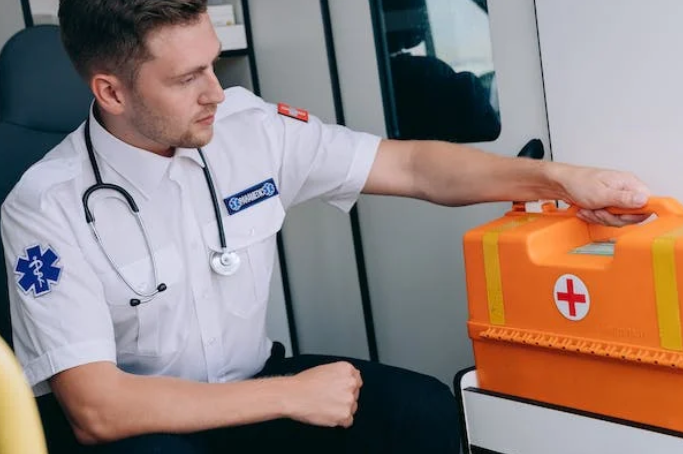
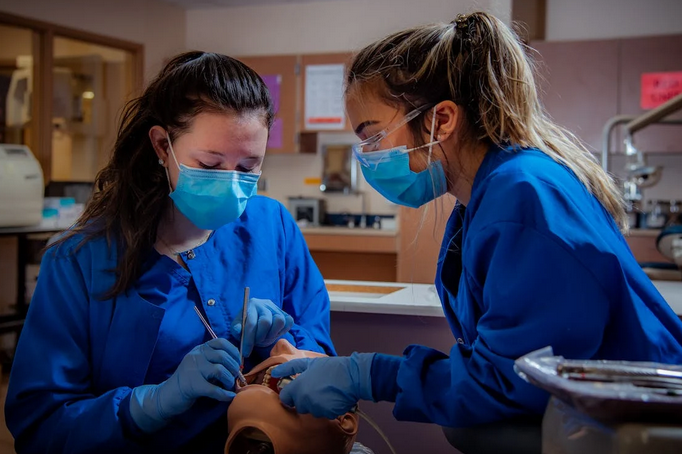



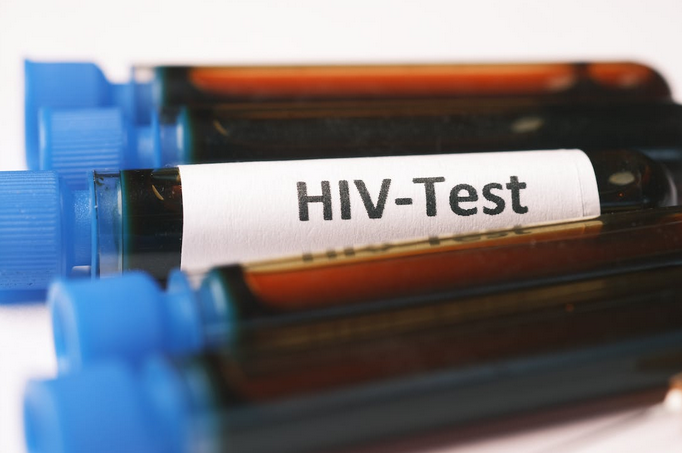

 Munchies, like candy, biscuit, cookies, and chips are all culprits for tooth decay. You must know that there is an ecosystem of microorganisms in our mouth. Whenever there is too much sugar in there, the bacteria will thrive, and their number will cause health trouble.
Munchies, like candy, biscuit, cookies, and chips are all culprits for tooth decay. You must know that there is an ecosystem of microorganisms in our mouth. Whenever there is too much sugar in there, the bacteria will thrive, and their number will cause health trouble.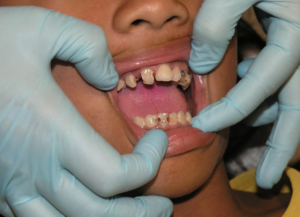 A prolonged condition of acid environment will damage the tooth severely. And at the latest stage, the tooth will decay, appear blackish, and smell horrid.
A prolonged condition of acid environment will damage the tooth severely. And at the latest stage, the tooth will decay, appear blackish, and smell horrid. Kids, somehow, will be afraid of dentists by default. Even if you believe you have never depicted visiting a dentist as a terrifying experience, your kid will be most likely to avoid it. But you must not worry.
Kids, somehow, will be afraid of dentists by default. Even if you believe you have never depicted visiting a dentist as a terrifying experience, your kid will be most likely to avoid it. But you must not worry.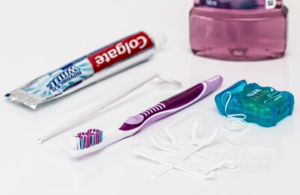 Kids learn by example, and you cannot expect your kids to be hygiene if you do not practice healthy habits yourself. Every time you eat with your kids, ask them afterward to brush teeth together with you.
Kids learn by example, and you cannot expect your kids to be hygiene if you do not practice healthy habits yourself. Every time you eat with your kids, ask them afterward to brush teeth together with you.